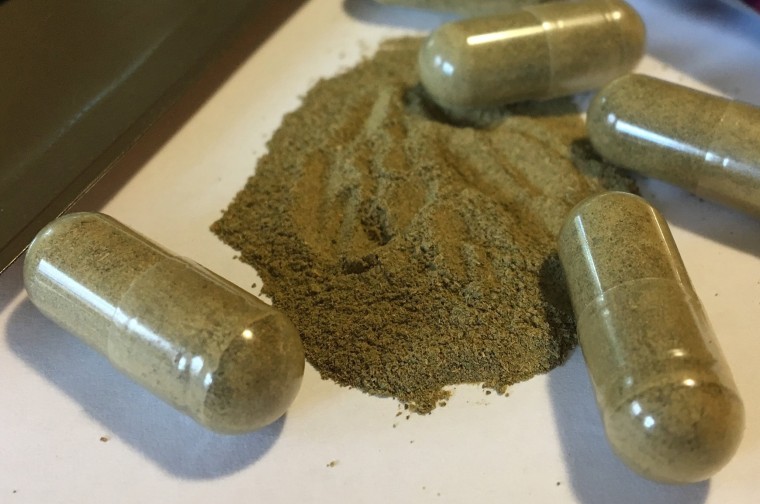The Food and Drug Administration issued warning letters Tuesday to two private companies for illegally selling unapproved, misbranded drugs containing kratom and claiming that their products can cure opioid addiction and withdrawal symptoms.
Cali Botanicals, based in Folsom, California, and Kratom NC, of Wilmington, North Carolina, also claim that their products can treat pain and cancer, as well as mental health conditions such as depression and anxiety.
“We have issued numerous warnings about the serious risks associated with the use of kratom, including warnings about the contamination of kratom products with high rates of salmonella that put people using kratom products at risk, and resulted in numerous illnesses and recalls,” the acting FDA commissioner, Dr. Ned Sharpless, said in a statement. “Despite our warnings, companies continue to sell this dangerous product and make deceptive medical claims that are not backed by science or any reliable scientific evidence.”
The federal agency says the companies are using websites and social media to illegally market kratom products, making unproven claims about their ability to cure, treat or prevent disease.
Advocates say kratom helps ease the pain and reduce the symptoms of opioid withdrawal, but the FDA has not approved it for any medical use. In 2018, the agency even declared the popular herbal product to be an opioid after finding that it acts in a similar way in the brain.
A report released in April linked kratom to 91 overdose deaths in 27 states, though in the majority of those cases, kratom was taken along with other drugs including heroin and fentanyl.
Kratom comes from a plant native to Southeast Asia. It is sold in capsules and powders, and sellers market it as a safe, "plant-based" product, but as former FDA commissioner Dr. Scott Gottleib has pointed out, heroin also comes from plants.
The FDA has been clamping down on the supplement and has, in the past, issued warnings to companies marketing it to fight opioid use. The agency has also warned of traces of heavy metals like lead in some kratom products.
“As we work to combat the opioid crisis, we cannot allow unscrupulous vendors to take advantage of consumers by selling products with unsubstantiated claims that they can treat opioid addiction or alleviate other medical conditions,” Sharpless said.
FOLLOW NBC HEALTH ON TWITTER & FACEBOOK

